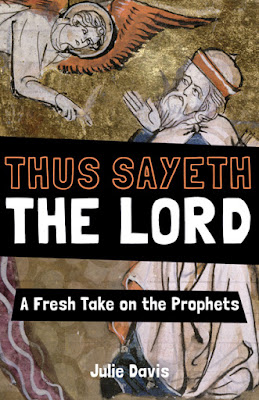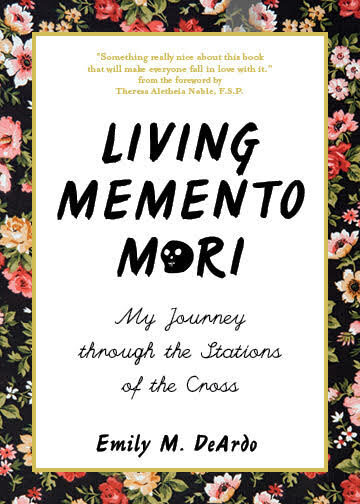1. If you didn’t come here from there already, go visit our hostess. She’s got an especially entertaining set of takes up, including a bit of other interesting bookishness, Tom Clancy edition.
2. Of course you want this book:

That is why you’re here today, right? Excellent.
3. I read this book. This is how I know you want it. Or, if you answered #2 incorrectly, you would want it if only you were in your right mind this morning.
3.5: What if you already have a copy?! And now it’s too late to win one! You’re allowed to enter and win for a friend instead. See? Thanksgiving present. Perfect.
3.75: As I told you last week, it’s AOK to enter this contest, win the book, and never come back to this blog again. I so don’t care and am not keeping track.
4. Here’s the scoop on the book, and why you need to reform your ways if you didn’t answer #2, 3, 3.5, or 3.75 correctly:
(A) You know how you hate NFP? You use it and all, or you would, but it’s maybe not the rapturous experience that you always dreamt of, when you first read the words “cervical mucus”? This book is about that. NFP Frustration.
(B) The book doesn’t talk about cervical mucus. It doesn’t have 10 Ways to Get a Better Temp Rise, Faster! Now! A Full 4/10ths of a Degree or Your Money Back!!
Most books are better if they don’t include that. –> Except if you’re trying to learn NFP. In which case the amusing way in which this contest is being run will help you with that.
(C) Every stupid thing about NFP ever. said. by some idiot who clearly has a Josephite marriage and prefers it that way (did Joseph? I’m skeptical.), REFUTED! Blammo! In YOUR PLACE crazy people. Done.
(D) Except charitably.
(E) Downright Theology of the Body, if you must know. Only, it’s not, “I drank the TOTB water, and now I drool unicorns and rainbows.” It’s more like: “Hey! TOTB Water! You can brew beer with that!”
(F) It’s a short book.
(G) There were points where I did not laugh out loud. I laughed so hard sound would not come out of my body. I would have rolled on the floor laughing, except that I was laughing too hard to fall out of my chair. I’m sure it was weird looking. There are certain chapters you might not want to read in public.
(H) We aren’t doing the whole alphabet.
(I) But I thought up another thing: This book is the perfect marriage book. So if you know somebody who’s married, or who is thinking of getting married, this would be a great gift. I’ve been married 47.5% of my life. I know what it takes. Simcha’s nailed it. On the head.
(J) It’s pronounced “Sim-ka”. Like the “ch” sound in “School”. Because Simka’s so chool.
(K) Yeah, I was saying it wrong too.
(L) I didn’t ask how to pronounce “Fisher”. We’re all just winging it on that one.
5. How to Enter the Contest
[UPDATE: I made an easier entry method over at AmazingCatechists.com. Go there for the simple name-and-a-comment version. You can also make it your 4th entry, if you’ve done all three here. Now back to how it works here . . .]
The giveaway takes place 100% 98% in my combox. I just cleaned out my spambox, but you’ll be more likely not to end up permanently moderated if you don’t choose a name like, “Free Nike’s Cheap” or “Real Louis Vuitton.” If your name is also the name of a famous piece of merchandise, or includes a grocer’s apostrophe, you might wish to use an alias for this one.
To enter the contest, leave a comment here in this post. Not a different post. This post. Give yourself a username (it can be anything, but if you win, Simcha’s going to call you that name), and leave an e-mail address in the field that asks for it, which only I the moderator can see, a nobody else. If you like, go get yourself a free e-mail account solely for this contest, if that’s the way you roll. You don’t need to fill out the “website” field, though if your entry is especially amusing, people might want to know about you.
You get up to three entries within your comment.
Entry #1: Say something nice to Simcha! Examples of winning entries:
“Hi, Simcha!”
“Thanks for writing this book!”
“Your kids are cute!”
“I’m not stalking you, Simcha, I just want a free book, that’s all!”
Entry #2: There’s nothing in Simcha’s book about how to actually use NFP. So tell us where you learned NFP, or give us a link to a useful website you like, or something else that will help the puzzled people who have no idea why 4/10ths of a degree is so, so, important.
#2: Alternative: If you have no clue about those 4/10ths, you can say that. You could also say something like, “I don’t know why cervical mucus is such a big deal,” or “I wish I could be as cool as you NFP-using ladies, but instead I answered the call to holy orders, but I need this book for my couple that does marriage prep, and the finance council won’t give me $4.99.” Or whatever.
Entry #3: NFP. Discuss.
#3 Alternative: Tell us a good joke. Something clean, or I’ll have to edit it.
6. You don’t have to do all three entries. But you increase your odds of winning if you do.
7. The drawing will be done using accounting methods, not literary ones. You don’t have to be clever to win, you just have to vaguely sort of follow instructions.
The contest closes at Midnight on Monday, November 4th. By “Midnight”, what we mean is sometime after midnight in NYC, and probably no sooner than about 4 – 5 AM Tuesday, later if we’re lucky. By “Tuesday”, what we mean is, “A day that comes after Monday, and it might even really be Tuesday.”
If you are the winner, I will announce your username from the combox on this blog so that everyone knows, sort of, who won. I will also e-mail you using the address you gave me. If it becomes apparent that you expired from the shock and pleasure of it all, we’ll pick a new winner.
–> Simcha will then send you your copy of the book in the digital format of your choice, from her collection of possible digital formats. She’s really nice about helping technically-challenged people figure out how to open their book. I tested her on this to make sure.
Enter now!
Sinner’s Guide cover art courtesy of Amazon.com.

![On Killing: The Psychological Cost of Learning to Kill in War and Society by [Dave Grossman]](https://m.media-amazon.com/images/I/51xlYFvYCYL.jpg)













